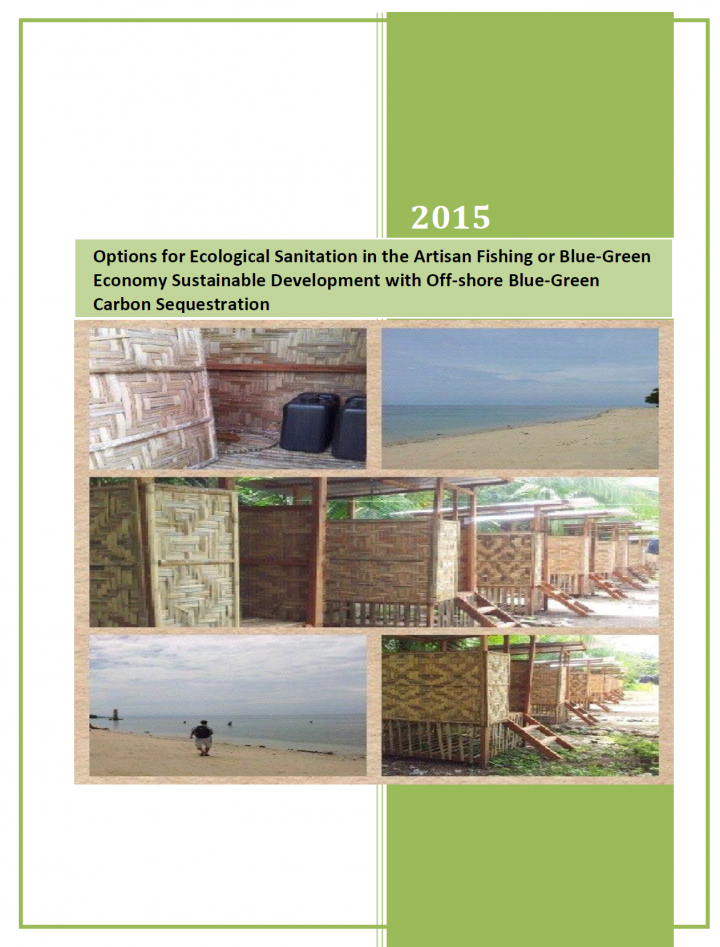Options for Ecological Sanitation in the Artisan Fishing or Blue-Green Economy Sustainable Development with Off-shore Blue-Green Carbon Sequestration
Galay Jr., C.L., Finnson, A. (2015)

Published in: 2015
Pages: 21
Author:
Galay Jr., C.L., Finnson, A.
Uploaded by:
SuSanA Admin
Partner profile:
common upload
3811 Views
25 Downloads
Content - Summary
This report is submitted to the Toilet Without Borders (TWB) Sweden as an initial concept paper for expanding or extending TWB Sweden’s project conceptual assistance to Non-Government Organizations (NGOs) working as partners to the Ecological Sanitation Program to meet the Millennium Development Goals (MDGs). This report presents literature with relevance to decision-making process and financial support to both hardware and software components of the ECOSAN. The report ensures that important feasibility and sustainability points are well articulated in each section to illuminate interconnected sanitation finance issues in the Post-2015 Sustainable Development. The Post-2015 Sustainable Development targets sustainability of the MDGs in climate change vulnerable areas such as the Small Developing Island States (SDIs) or Islands in the Pacific Region. The financing mechanisms for the Post-2015 Sustainable Development are heavily focused on internal finance resource mobilization of the developing countries. Thus, Ecological Sanitation (EcoSan) and its interconnectedness with agricultural productivity may have huge role in helping small developing island coastal communities (Blue-Green Economy-UNEP) find alternative income generating activities other than seasonal artisan fishing that may become even worst in climate change.
This report is organized by the following sections:
1. Introduction
2. Summary of cases published in several reports
3. Public relations strategies and proposed action plans
4. Monetary valuation in wastewater using costs of detergents as proxy to human wastes
5. Conclusion and recommendation
Bibliographic information
Galay Jr., C.L., Finnson, A. (2015). Options for Ecological Sanitation in the Artisan Fishing or Blue-Green Economy Sustainable Development with Off-shore Blue-Green Carbon Sequestration.














